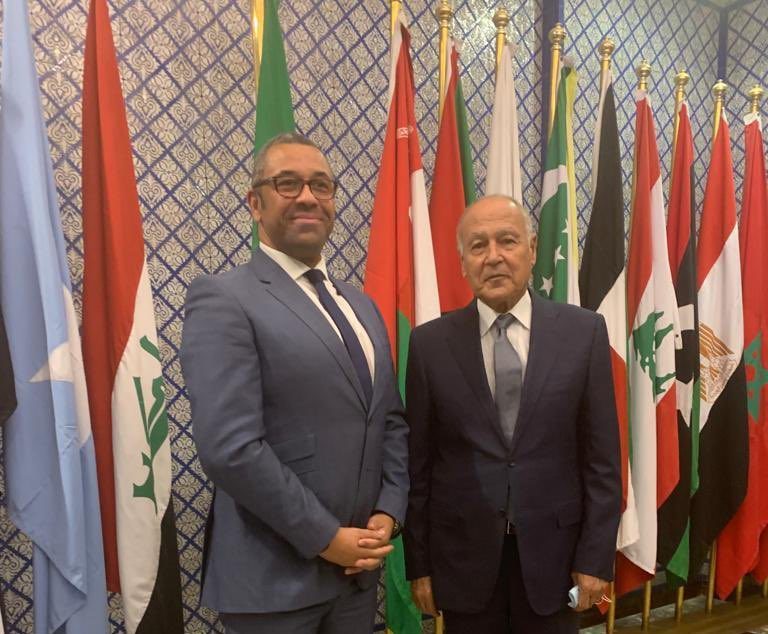The director general of the UN’s nuclear watchdog called for a meeting with Iran’s foreign minister.
The Arab League and the UK shared concerns over Iran’s nuclear programme on Tuesday, echoing statements made by several other nations amid stalled talks to restore the 2015 accord.
This came during a meeting between UK Minister for Middle East and North Africa in the Foreign, Commonwealth and Development Office, James Cleverly, and Secretary-General of the Arab League Ahmed Aboul Gheit in London.
I met too with @arableague_gs Aboul Gheit, to discuss recent developments in the region, including Iran, Libya and Syria.
The Arab League shares our concerns over Iran’s nuclear programme and, like us, also supports the political process in Libya. pic.twitter.com/ZyCWgLEDAA
— James Cleverly🇬🇧 (@JamesCleverly) October 19, 2021
Aboul Gheit and Cleverly also discussed regional issues, including Syria and Libya.
“The Arab League shares our concerns over Iran’s nuclear programme and, like us, also supports the political process in Libya,” said the UK official.
Concerns over Iran’s nuclear programme have been growing since the Islamic Republic took steps to increase its uranium enrichment, a move made in response to a series of attacks on its nuclear sites this year.
Iran has blamed Israel for the ambushes – which also affected its key Natanz nuclear site – due to its vocal opposition of the US’ return to the Joint Comprehensive Plan of Action [JCPOA].
More recently, the US and Israel warned they would pursue “other options” if Iran does not halt its nuclear activities, accusing their rival of creating weapons.
“If the Iranians don’t believe the world is serious about stopping them, they will race to the bomb. Israel reserves the right to act at any given moment in any given way,” warned Israeli Foreign Minister Yair Lapid in a joint press conference with his Emirati counterpart Sheikh Abdullah Bin Zayed and Secretary Blinken in DC over the weekend.
The restoration of the JCPOA following the US withdrawal in 2018 has been a priority among members of the P4+1, with parties involved in the accord seeking the resumption of Vienna talks for months.
Indirect US-Iran talks kicked off in Vienna in April this year to revive the 2015 nuclear accord following former US President Donald Trump’s exit from the White House.
Meanwhile International Atomic Energy Agency Chief Rafael Grossi called for a meeting with Iran’s Foreign Minister Hossein Amir-Abdollahian over surveillance of Tehran’s nuclear sites.
“I haven’t been able to talk to [Iran’s new] foreign minister,” Grossi told the Financial Times [FT] during his Washington visit on Tuesday.
“I need to have this contact at the political level. This is indispensable. Without it, we cannot understand each other,” added the official.
Read also: US envoy to Iran in Qatar amid stalled nuclear talks
Grossi also told reporters that he anticipates news regarding an upcoming visit to Tehran, which he believes may take place ahead of the nuclear watchdog’s November Board of Governors meeting.
“I am expecting news soon about it,” he told reporters in Washington, noting that the expectation over the visit is based on conversations he had with Iranian officials.
On Tuesday, Qatar’s Foreign Minister Sheikh Mohammed bin Abdulrahman Al-Thani met with US Special Envoy for Iran Robert Malley in Doha.
While no further information was revealed regarding Malley’s visit to Doha, it comes as Qatar calls on the international community to resume stalled nuclear talks in Vienna to accelerate the revival of the JCPOA.
Follow Doha News on Twitter, Instagram, Facebook and Youtube







